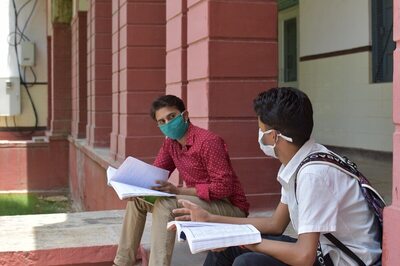
views
Authorities in Chennai have divided the city into 2,056 sectors to fight dengue, malaria, chikungunya and other mosquito-borne diseases even as several areas in the city were found to be potential dengue hotspots. This was stated during a review meeting held by the minister for rural and municipal administration S P Velumani on Friday and health minister C Vijaya Bhaskar at the Greater Chennai Corporation headquarters on Friday.
Velumani said fogging operations had been carried out at 14.13 lakh houses, 12,906 vacant lands, 6,917 locked homes, 1,665 government buildings, 1,841 school buildings, 7,722 under construction sites, 326 government hospitals and 532 private hospitals in the city, according to Times of India (TOI) report.
“The civic body has about 39 vehicles and 227 handheld equipment for fogging operations,” he said, adding residents and commercial establishments would be asked keep surroundings clean through awareness campaigns.
Greater Chennai Corporation officials said they would prioritise vector control measures in areas like Tondiarpet, Vyasarpadi, Madhavaram and Velachery which were found to be potential dengue hotspots.
Between July 19 and 24, field officers from the corporation sent Aedes mosquitoes and larvae picked from Thiruvottiyur, Manali, Madhavaram, Tondiarpet, Thiru-vi-ka-Nagar, Adyar, Perungudi and Sholinganallur areas to the Directorate of Public health for tests. “These potential hot spots keep changing. We do fogging to bring down population of adult mosquitoes. Our field staff identified breeding sources of Aedes mosquitoes in the community, open spaces and inside houses, industries, offices and government institutions,” corporation deputy commissioner (health) P Madhusudhan Reddy was quoted as saying.
“The density of Aedes mosquitoes until the first week of September was found to be low,” chief vector control officer S Selvakumar said, citing daily surveys.
Field officers recorded house index (the percentage of houses infested with larvae and/or pupae), container index (the percentage of water-holding containers infested with larvae or pupae) and breteau index (number of positive containers per 100 houses inspected).
“A house is considered low risk if the point is less than one,” he said.
However, city health officer Dr N Senthilnathan said that not all Aedes mosquitoes carry the virus.
“A female infected mosquito injects the virus into humans. If the viral load is high or the immunity in the human is low, it can make the person seriously ill,” he said.
Dengue has killed nearly 80 people in Tamil Nadu and led to almost 30,000 people being hospitalized in the past three years, TOI reported, adding the number of dengue cases this year has gone down compared to 2017 and 2018.
Director of public health Dr K Kolandaisamy said the robust habitat available to mosquitoes due to the state’s environment means, “We must do vector control throughout the year.”



















Comments
0 comment